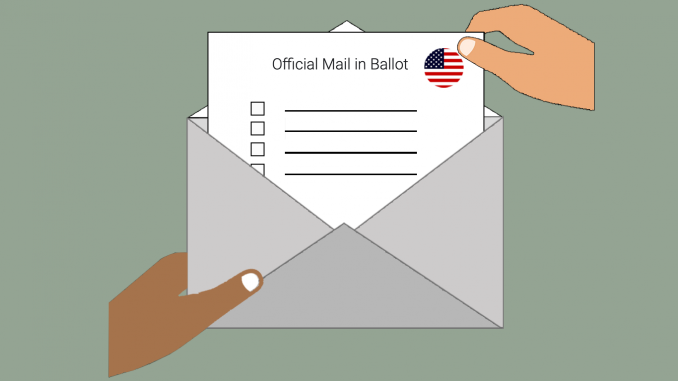
As if 2020 could not be more stressful, the upcoming election is less than one month away.
Amid the nationwide Black Lives Matter protests, the push for a new Supreme Court justice and the COVID-19 pandemic, the 2020 presidential election will dictate the country’s trajectory for years to come.
A pandemic is no excuse to skip voting this year. If anything, it’s more important than ever to vote.
The COVID-19 pandemic, economy, Supreme Court and race and violence are issues discussed at the presidential debate on Sept. 29 that will impact young adults for the next four years.
Pennsylvanians should register to vote by the deadline, Oct. 19.
This year, Pennsylvania is allowing “no-excuse absentee voting,” so anyone can register to vote by mail, Philly Mag reported.
In Philadelphia, voters can drop off their mail-in ballots at one of the 1,566 United States Postal Service boxes or offices available to the public, in addition to their county election office or a drop-box.
On Sept. 29, the Liacouras Center became one of Philadelphia’s seven new satellite election offices, at which students can register to vote and request or turn in a mail-in ballot, The Temple News reported.
The general election poses a challenge because of people’s apprehension of in-person and mail-in voting during the COVID-19 pandemic, said Michael Hagen, a political science professor.
“Emotions on both sides of the partisan divide are running high,” Hagen said. “The pandemic is imposing burdens on us and the election system and demonstrating the capacity of the United States to hold a fair and decisive election.”
But many public health experts have argued that in-person voting is no more dangerous than going to the grocery store, the Atlantic reported.
Trump opposed additional funding for the U.S. Postal Service to delay deliveries of mail-in ballots, the Guardian reported.
As a result, people became concerned that their ballots would not be counted in the election, the Washington Post reported.
Voters in multiple swing states, or states where a Republican or Democratic candidate is likely to win, will be granted an extension for mail-in ballots. Ballots that are postmarked by Nov. 3 will count as long as they arrive within the next three days, NPR reported.
As of Oct. 5, former Vice President Joe Biden holds 52 percent of the vote in the national CNN poll, compared to U.S. President Donald Trump’s 42 percent.
While this is an indicator that Biden is the more popular candidate nationwide, his early lead cannot predict the outcome of the election, as seen with Hillary Clinton in 2016, BBC News reported.
Casey Tsou, a junior communications and social influence major, doesn’t want this election to repeat history, she said.
“The mentality is that a bunch of people are going to do it, so why should I have to? I think that’s what happened in 2016,” Tsou added. “But the mentality should be what if no one does it and mine is the one that counts?”
Millennials and some members of Generation Z comprise 37 percent of eligible voters. But younger voters have historically shown up at the polls in disproportionately lower rates, NPR reported.
While this may be attributed to voter apathy, Joey Forsyte, founder of A Band of Voters, a collective of artists in California determined to improve voter turnout nationwide, said the stigma of not knowing how to vote discourages young people.
“My experience is that young people do care, but there’s a lot of barriers to voting and shame in not knowing how to vote,” Forsyte said. “There’s been a systemic disenfranchisement of voting in this country, and if you’re a person of color or low-income, then those barriers are even greater.”
Voting is a civic duty and a privilege. With the abundance of information on social media, young people should have the resources to educate themselves through the process.
“The candidates present quite different orientations toward the future,” Hagen said. “The future is going to be inhabited for a longer time by students than older folks, so there is a lot at stake for students.”



Be the first to comment